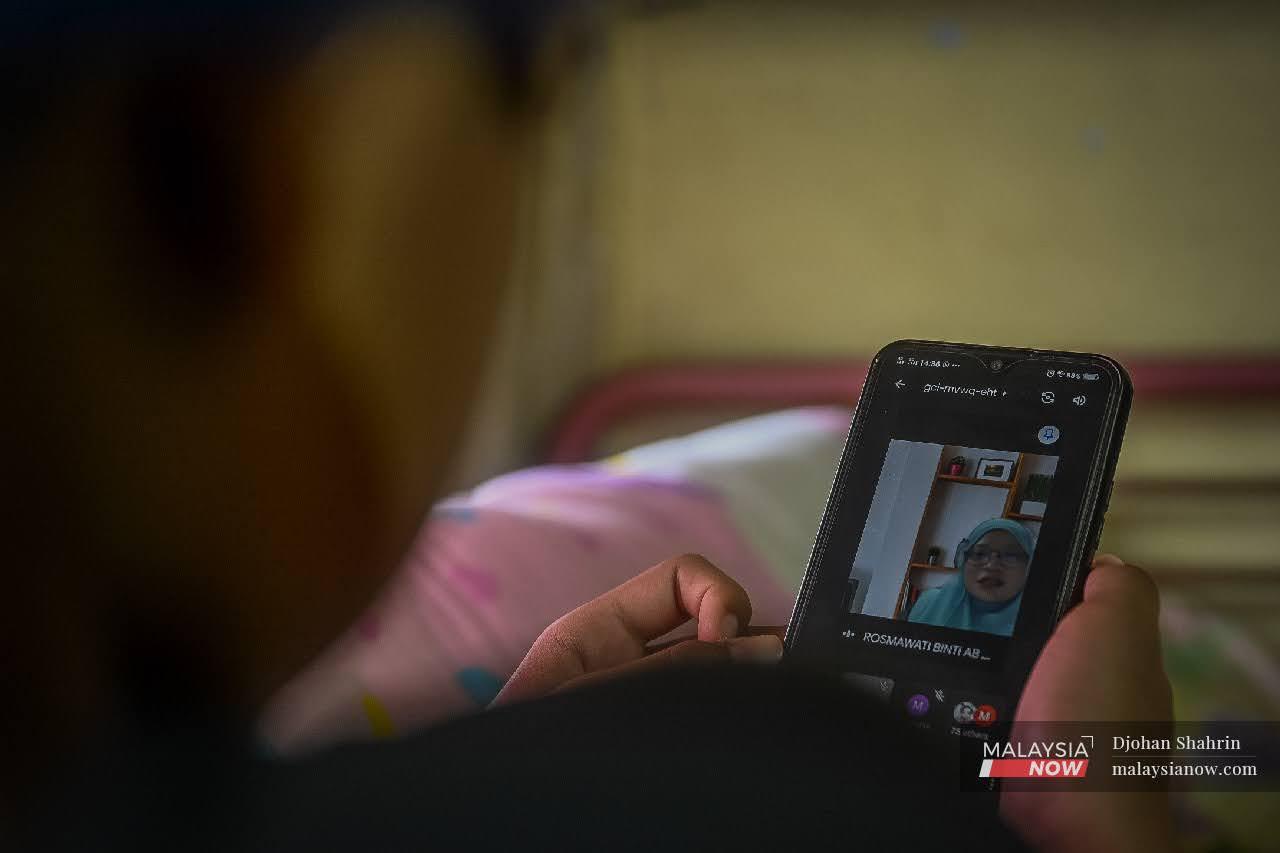Online learning the best bet for now, expert says as pandemic continues havoc for schools
Educationists say it is difficult to change the school calendar in the midst of the Covid-19 pandemic.
Just In
The education system experienced an upheaval with the arrival of the Covid-19 pandemic last year which saw schools shut down and teachers, students and parents forced to adapt to a new environment through home-based teaching and learning (PdPR).
Along with the changes to the venue and method of education came multiple adjustments to the school calendar itself, as the various lockdowns and movement control orders enforced to curb the spread of Covid-19 disrupted plans for a return to the physical classroom.
Former education director-general Alimuddin Mohd Dom said determining school sessions would depend on two major factors.
“Firstly, exams,” he told MalaysiaNow. “Before this, all exams were held at the end of the year during the school break.
“This was because the school administrations needed a venue to hold the exams. When students were on holiday, there was space for exams to be held.”
He said the second factor was the local weather. Malaysia normally experiences heavy rain and floods towards the end of the year due to the monsoon period, which also explains the decision for school holidays to be held at this time.
Alimuddin however added that the weather had begun to change of late, with floods often occurring at unpredictable times.
“This is a big change as we have been following the old system since before independence,” he said.
“Certainly there are many things to think about, especially in terms of exams.”
He said the views of the Malaysian Examinations Council, NGOs, the public and teachers themselves should be gathered before a decision is made on the advantages or disadvantages of changing the calendar.
Normally, the academic year begins in January and ends in November.
Due to the pandemic, the Form Five SPM examination last year was conducted in stages with the oral examinations held in 2020 and the written papers held in February and March this year.
Meanwhile, the plan to reopen schools in stages from Sept 1 this year according to the phases of the National Recovery Plan was put on hold due to the continued spike in Covid-19 infections.
According to data from Unicef, as of March this year, 168 million children across the world had been affected by the year-long closure of schools due to movement restrictions.
The situation has forced a return to the drawing board for the people and authorities alike to rethink the best strategy for determining the annual school calendar.
One of the concerns is the possible delay in the start of the academic year. If the Covid-19 situation forces schools to open later than the usual point in January, the academic year will also end later, possibly crossing over to the next year.
Pupils who begin Standard One in March 2022, for example, might only complete the year in 2023.
According to data from Unicef, as of March this year, 168 million children across the world had been affected by the year-long closure of schools due to movement restrictions.
As many as 214 million children meanwhile missed out on three quarters of face-to-face classes.
Azlin Norhaini Mansor, an educationist from Universiti Kebangsaan Malaysia (UKM), discouraged any present move to change the school calendar.
“Too many changes and uncertainties that are out of the people’s control have forced them to make adjustments in their lives, like the political unrest, economic instability and the pandemic,” she told MalaysiaNow.
“It would be best for us to keep any other changes to a minimum.”
She advised that the school calendar be kept in its present form, urging students, teachers and parents to embrace PdPR as the best and safest method for now.
She recommended that this strategy continue until the pandemic can be brought under control.
“The education ministry should prioritise Form Five and Six students as soon as the situation allows for the resumption of face-to-face classes,” she said.
“If necessary, shift the dates for SPM as was done in 2020, but take into account any weaknesses and improve the implementation of this first.”
Azlin also urged all quarters to pay heed to the so-called “lost generation” of students at schools and institutions of higher learning.
“Teachers, employers and the community should think of ways to help them, perhaps by giving them extra classes, exercises and guidance.”
In the future, she suggested the introduction of a semester system in schools where each term runs for five months with a break in between.
“Plans for a change to the semester system must be done well and in detail,” she added.
“Perhaps the content and type of subject offered could be rearranged according to the suitability and readiness of students.”
Azlin, who chairs the Centre of Education Leadership and Policy at UKM, said a semester system would allow students to be assessed at the end of each term, not just at the end of the year as is now the case.
“This is important for effective intervention to take place,” she added.
“Meanwhile the SPM exam could be taken in stages where a portion of the subjects are taken in Form Four and another portion in Form Five.”
She said the semester system also provides more flexibility in the event of disasters such as the pandemic, floods or haze which would require schools to be closed for a prolonged period of time.
Subscribe to our newsletter
To be updated with all the latest news and analyses daily.
